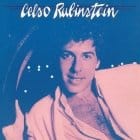Celso Rubinstein
Celso Rubinstein

Born in Brazil to a family of Holocaust survivors, Celso Rubinstein’s career as a singer allowed him to take residency in several countries including Spain, Portugal, Israel and Britain. He performed as an artist in numerous clubs and supported other artists as backing vocalist. In 1982 he booked studio time at Chico Batera’s studio in Rio De Janeiro to record two songs for an intentional debut album. On «Enquanto Houver», written by Paulinho Mendonça and Gerson Conrad, Rubinstein tried to infuse some rap flavour: «I wanted to get away from that style of singing where you sing a bunch of notes without breathing. You can hear that all the words in the song are pronounced properly but the cadence is broken up, so the intention was to do a kind of rap without it seeming to be rap.» Marina Lima and Antonio Cicero contributed «È A Vida Que Diz», a song as marvelously written as much as performed sophisticatedly by Rubinstein with his star-studded studio crew. Amongst them: Oberdan Magalhães and Claudio Stevenson from Banda Black Rio, Rique Pantoja, keyboard player, arranger and conductor Reinaldo Arias, as well as American session musician Don Harris. Celso Rubinstein wanted to create a unique atmosphere for the recording sessions, inviting numerous people to the control room to amplify the spontaneous live feeling even more (the control room was filled with people like Ney Matogrosso, As Frenéticas, Claudia Telles, Fátima Guedes.) You definitely can hear this vitality on the record originally published in 1982 by Rubinstein himself.
| 7inch | Notes On A Journey: NOAJ7001 | in stock |



